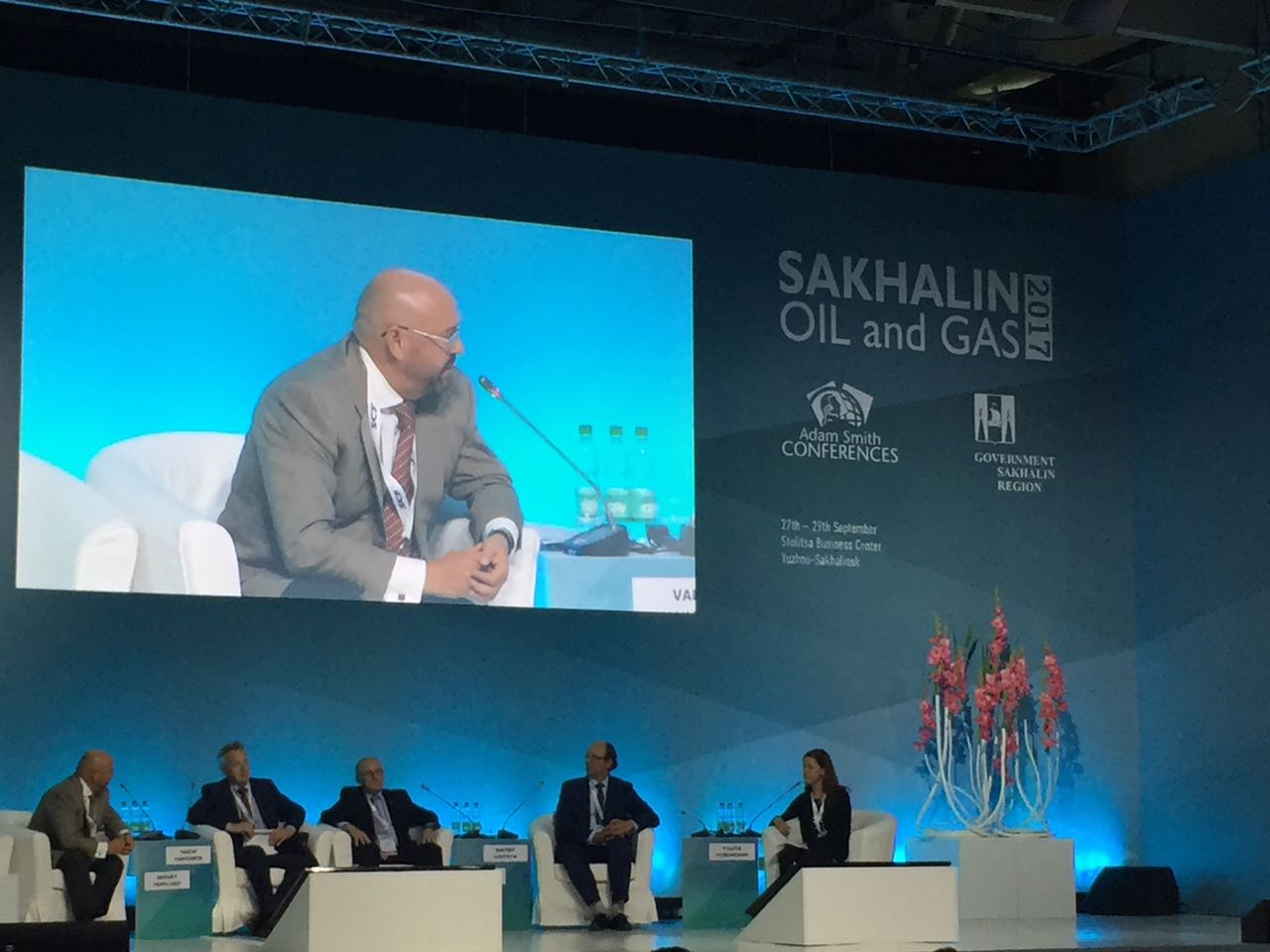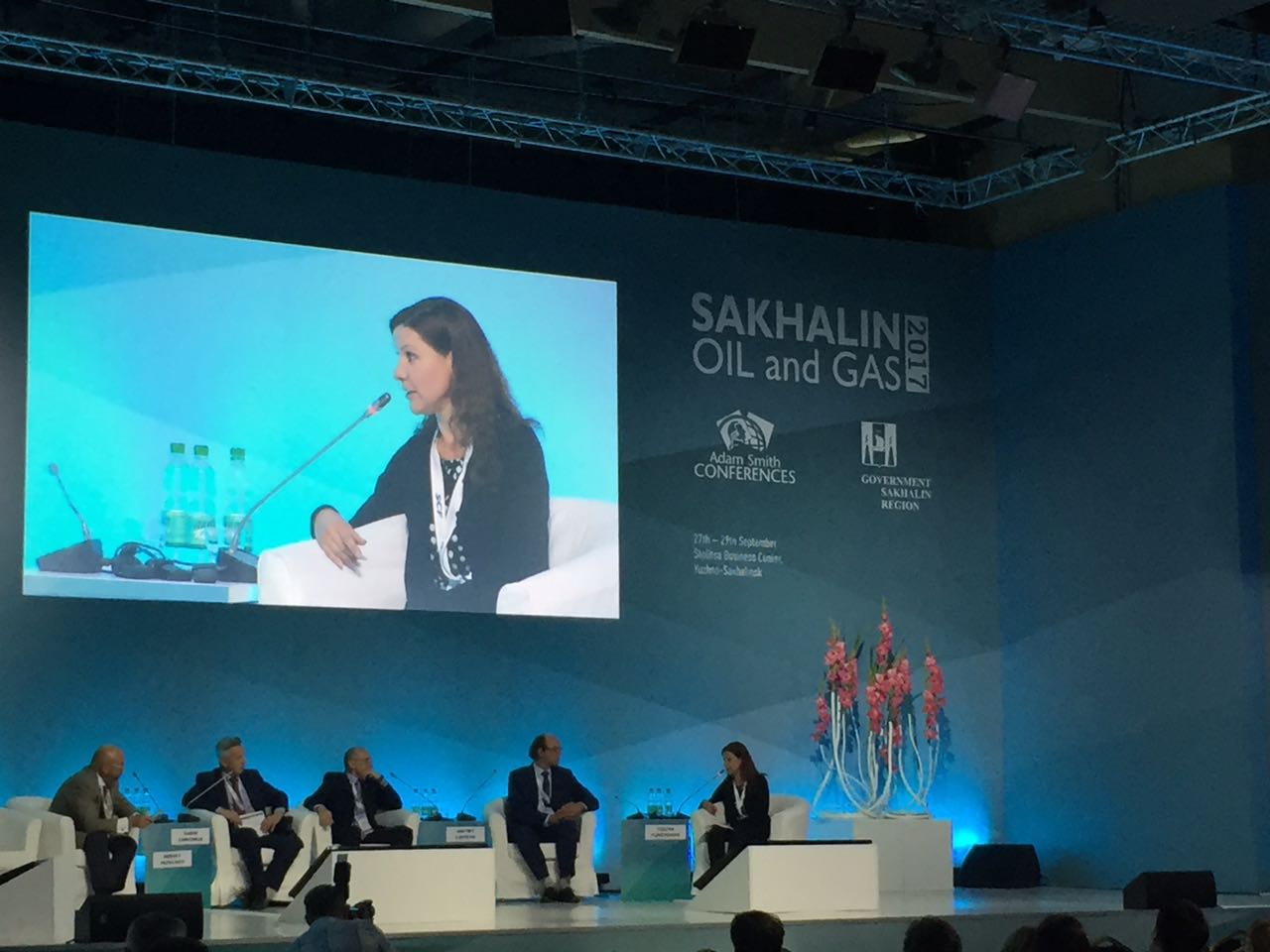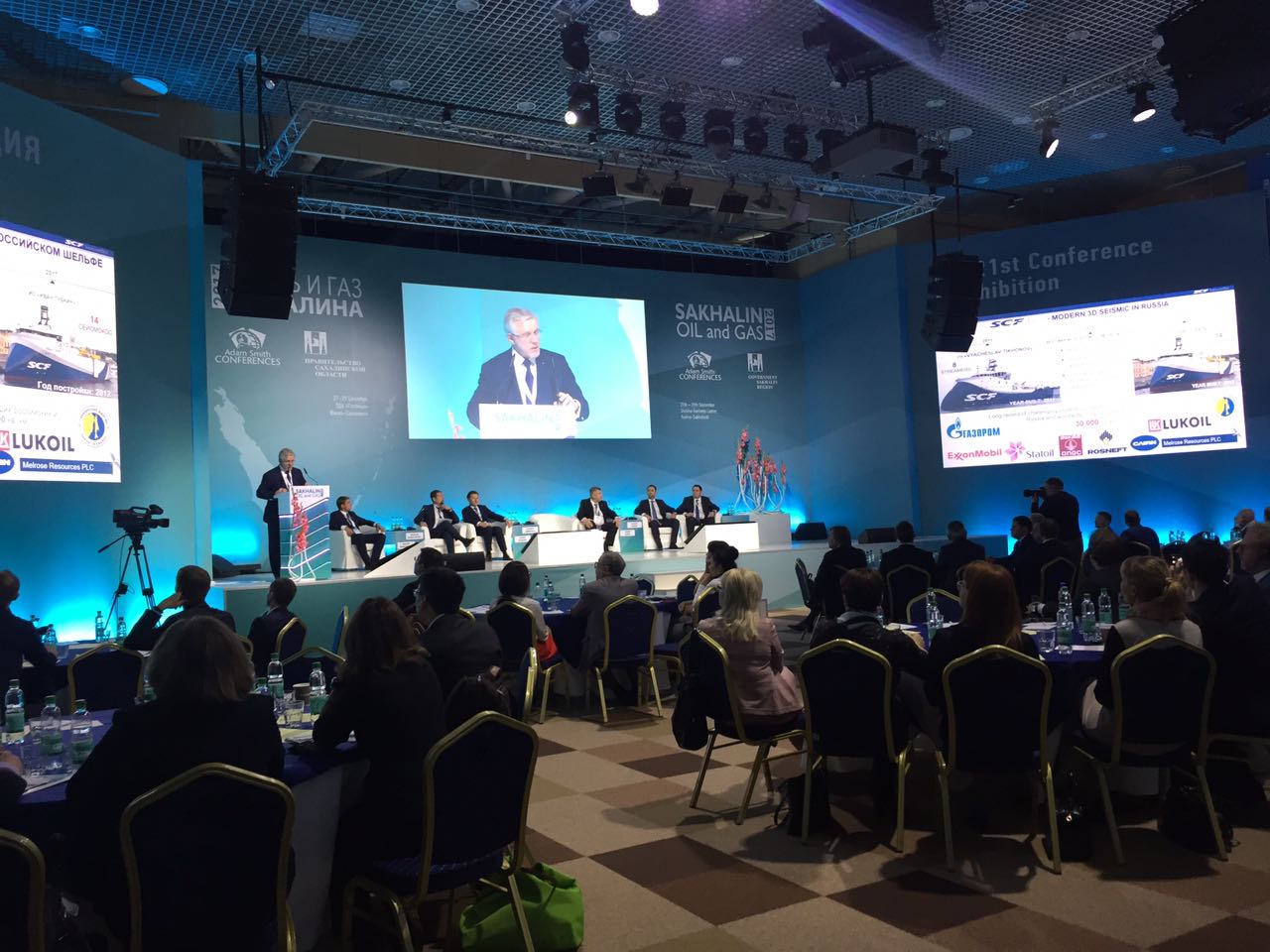A round table dedicated to the legislative incentives for an environmentally friendly approach to business was held in Sakhalin

On 28 September, a Pepeliaev Group’s round table under the title: ‘Legislative incentives for an environmentally friendly approach to business’ was held in Yuzhno-Sakhalinsk. The event was held within the framework of the 21st Sakhalin Oil and Gas Conference.
The discussion, which was moderated by Sergey Pepeliaev, the Managing Partner at Pepeliaev Group, was dedicated to legal mechanisms aimed at incentivising enterprises to behave responsibly with respect to environmental matters. The speaker was Yulia Yurchenko, an associate at Pepeliaev Group.
One of the key topics of the discussion was the problem of environmental impact assessments: whether this is a method to protect the environment, or an excessive impediment for business. In the opinion of the participants of the round table, a number of aspects of environmental impact assessments require adjustment. For example, criteria should be set for the candidate experts of the expert panel for the state environmental impact assessment which would ensure that the experts' qualifications meet the required level. Moreover, improvement is needed in the methodology used to assess damage to the environment which may be caused from future business operations, because the existing methodologies allow for approximate calculations which do not reflect the real impact. This, in turn, results in additional and unjustified expense for an enterprise. The list of facilities subject to an environmental impact assessment also needs to be revised, for it does not take account of the environmental hazards of future business operations. The list includes some non-hazardous facilities, yet does not include industrial enterprises that threaten the environment. Moreover, the wording for each facility subject to an environmental impact assessment should be clarified because of practical difficulties with interpreting the legal rules containing the list of such facilities. The competent authorities and courts make mistakes in classifying which facilities are subject to an environmental impact assessment. As a result, enterprises have liability imposed for no good reason.
Another topical issue for discussion during the round table was the problem with implementing the best available technologies. The obligation to implement such technologies is established by law. However such equipment and technologies come at great expense. Whereas large companies can foot the bill, for smaller enterprises the best available technologies are not really available because of their price. There are no effective measures today to encourage companies to implement the best available technologies. During the discussion, the participants came up with potential incentives, including, among others, ensuring more favourable conditions for the sale of products manufactured with the use of the best available technologies, increasing the price for land used for the placement of waste, and reducing the price for land used for the processing and treatment of waste.
The participants also discussed the difficulty of monitoring the environment and tried to find out whether this is a measure to protect the environment or whether it represents a shifting of the government's obligations onto business. The experts pointed out a number of issues in the area, such as the lack of technical capacity to measure some types of emission, the ambiguities in the list of controlled substances about which data should be recorded by automatic data management and transmission devices, and the absence of a system for acquiring data from automatic devices for such data to be recorded and transmitted. Moreover, there are doubts over whether such a data management and transmission system is needed and over the installation of appropriate equipment at the points of emission and discharge if an enterprise affects the environment within the established standards in accordance with permission documents. In this case, the existing methods for regulation and for environmental compliance checks will be sufficient and the proposed automated system will amount to excessive regulation giving rise to additional difficulties and expenses. However, the representative of the Ministry for the Protection of the Environment and Natural Resources expressed the opinion that these automated data management and transmission systems will minimise the risks for an enterprise of it being held liable for inaccurate data regarding the impact on the environment.


